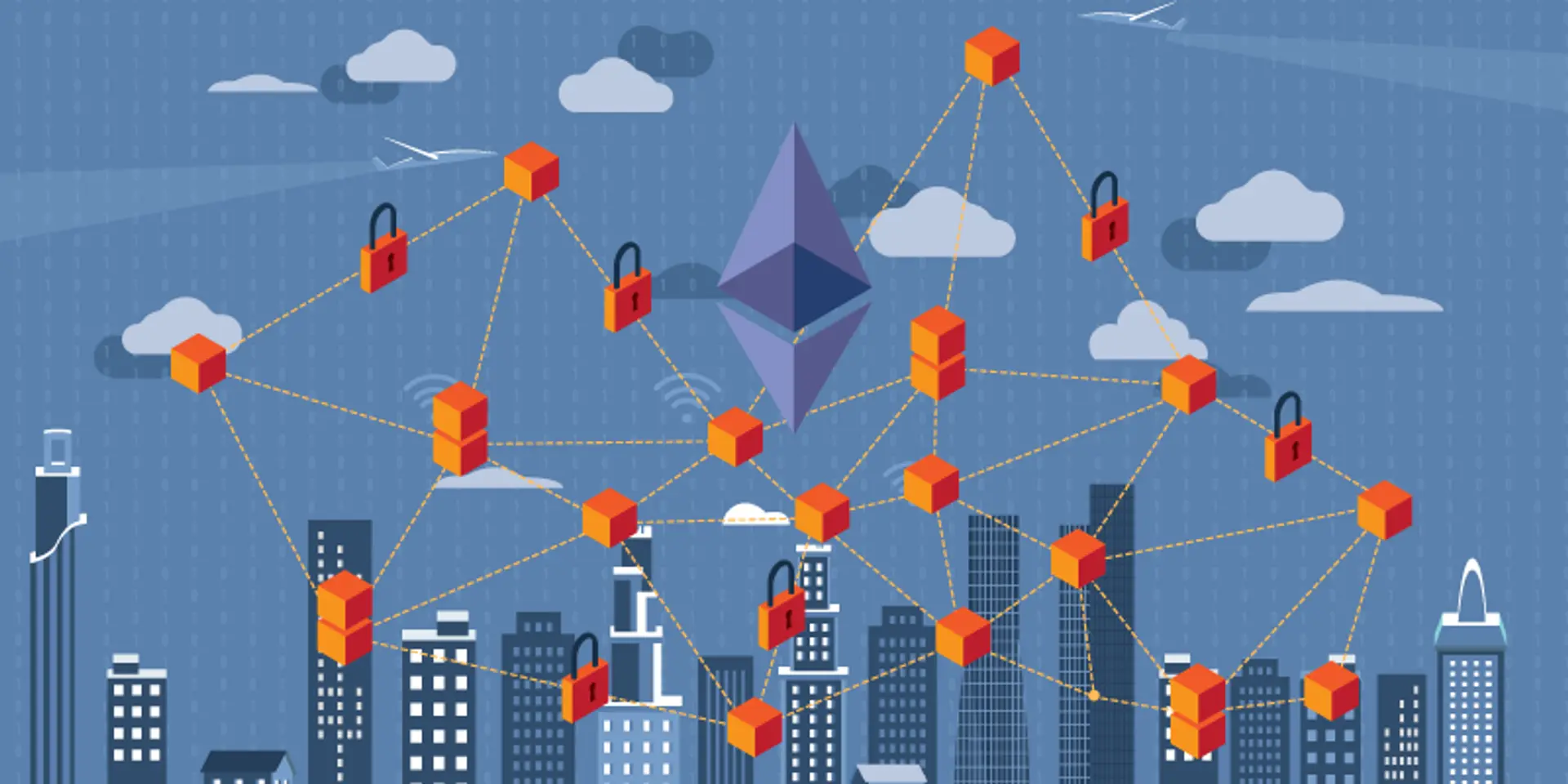The Blockchain quest: Why AWS is saying nay while the rest of the world goes yay
Google, Goldman Sachs and many large banks are betting on Blockchain tech, but Amazon Web Services will wait and watch as it doesn’t ‘build technology because we think it is cool’.
Last week, Amazon’s re:Invent had over 40,000 developers and businesses attending the technology conference in Las Vegas, Nevada. While every technology from Artificial Intelligence (AI) to Internet of Things (IoT) was discussed and certifications doled out to enthusiastic developers, Andy Jassy and Werner Vogels, the CEO and CTO of AWS, were reserved about Blockchain.
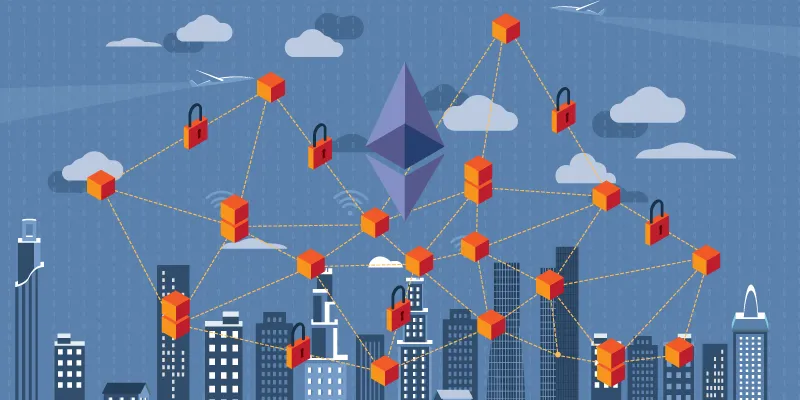
The distributed ledger technology, which is behind the Bitcoin cryptocurrency, allows transactions between multi-parties to be transparent and seamless; it ensures information cannot be tampered with. Everyone sees such a transaction as a “smart contract”. However, the AWS head honchos think differently.
Andy says: “A lot of our clients are building on top of Blockchain. But, I think the technology does not have the use cases yet for us,” beyond the distributed ledger. He adds AWS wants to spend time building technology that can be used by developers, rather than “building something cool”.
There is a reason why Amazon may not be betting on this technology. If Blockchain has to take off, it has to probably track and close thousands of contracts per second. The stock and bond markets, with billions of transactions between parties every day, are a classic example. Current legacy systems handle trade on a real-time basis, but work in silos and do not talk to each other. Unfortunately, today they have an edge because Blockchain technology handles only a handful of transactions a second.
Why Blockchain makes sense
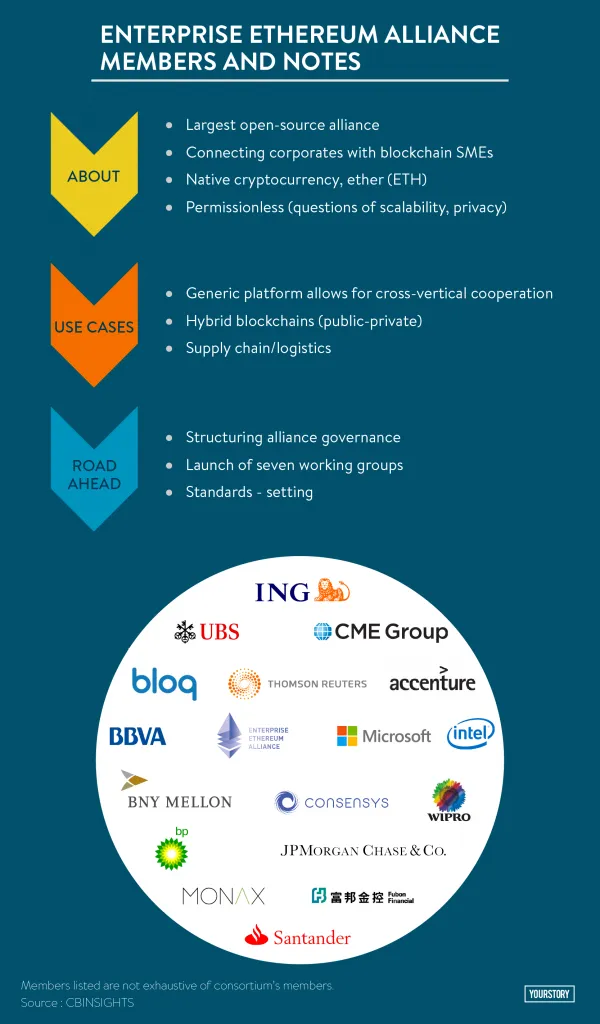
Arifa Khan, the representative of Etherium Foundation in India, says, “Blockchain has arrived, and today world leaders recognise it as a very important technology. But, it has not yet been able to transact thousands of contracts per second; that’s why adoption has been slow. In 10 years, it will be more than mainstream.”
According to PWC, $10 trillion of the global GDP will be on Blockchain by 2030, which is 10 percent of the global GDP. Why does it make sense? India, a $2 trillion economy, loses $20 billion each year tracking land titles. But since there are no large-scale use cases, companies are yet to adapt to it.
Rajesh Dhuddu, SVP Quatro, says, “Today, there is uncertainty in establishing how the whole thing works as they have not been able to tell how exchange of records happens.” He adds that Fortune 500 companies have still not moved to Blockchain because of the lack of understanding of the technology.
The others are invested
AWS may temporarily stay away, but others are not holding back. Everyone, from Google and Goldman Sachs to SBI Holdings Inc, is taking bets globally on the technology. Google has invested in six companies, SBI Holdings in eight, and Goldman Sachs has invested in four.
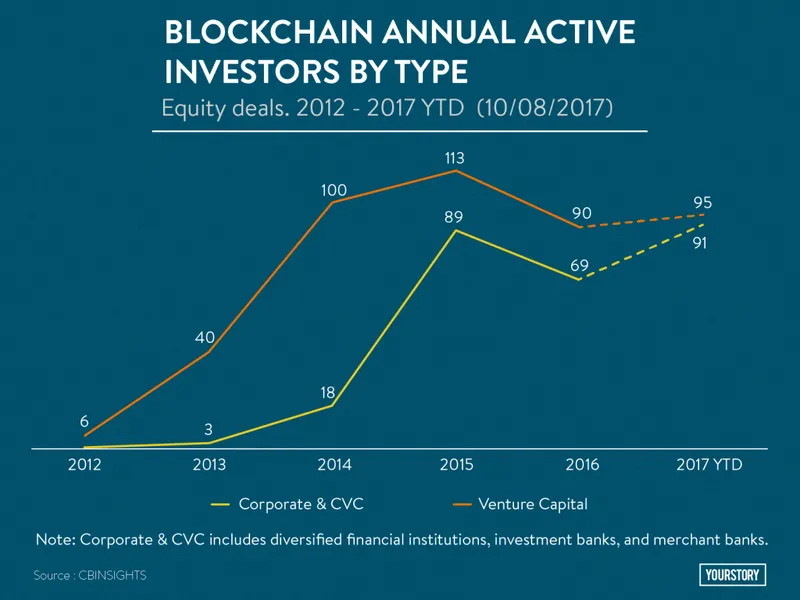
According to a CB Insights report, there are several companies building decentralised Blockchain applications across verticals, ranging from asset management to social networks to prediction markets.
The report adds that majority of funds have gone to core infrastructure and development projects, such as Tezos ($230M raised in Q3 2017) and Bancor ($153M in Q2 2017).
Computing and storage companies (often considered key Blockchain infrastructure) also saw substantial investor interest, with notable raises by Filecoin ($200M+ in Q3 2017), SONM ($35M in Q2 2017) and Golem ($9M in Q4 2016).
Around $1.3 billion has been raised through Initial Coin Offerings (ICO) and $259 million was raised through equity funding in 2017.
The recent boom in cryptocurrencies and ICOs has had a material effect on the number of Blockchain teams looking for financing, with traditional equity deals on track to set a new record of 188 in 2017, up from 138 in 2016.
VC-backed deals specifically should grow at a similar rate, to a run rate of 77 in 2017. Since 2012, over 650 equity deals to Blockchain companies have totalled more than $2.1 billion.
How IT services come in
According to Gartner Inc, the business value-add of Blockchain will grow to slightly more than $176 billion by 2025, and will exceed $3.1 trillion by 2030. That’s why IT services are betting big on it; it’s going to be part of their cloud and platform offering.
All IT services companies constitute less than 10 percent of their revenues from the cloud. With global corporations betting big on security, AI, Machine Learning and Analytics, all these services can be built on Blockchain-as-a-service.
Prasad Joshi, VP and Head, Infosys Centre for Emerging Technology Solutions, says: “It is, in essence, a file system where blocks of information are created in chunks and there are algorithms that manage the keys to access information.” He adds that implementation can happen in
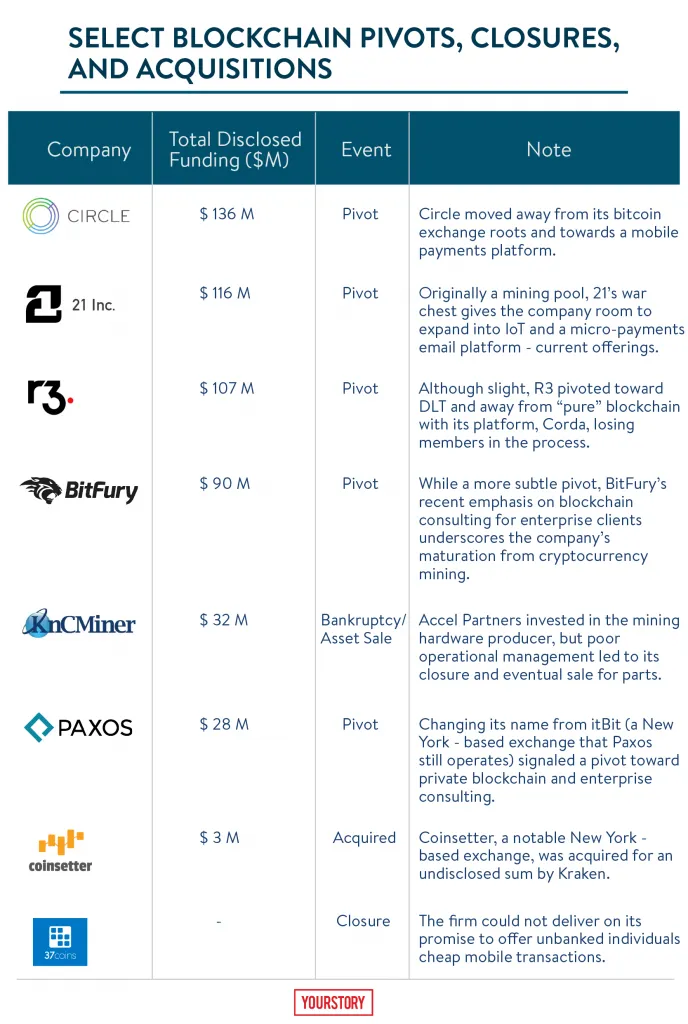
healthcare, financial services, manufacturing and consumer industries.
“The technology brings transparency and traceability. But, remember Blockchain is an ecosystem problem and not a technology problem. Unless you have all parties in the chain, the system does not work,” Prasad says.
He adds that smart contracts are a big business going forward in the IT Services industry and that Blockchain consortiums will be created with several ecosystem partners.
No wonder Google and others have jumped on to the bandwagon. But perhaps Amazon wants to see some real applications rather than only the finance industry betting on it.
That said, Blockchain is at a level where the internet was in 1997. But Blockchain applications are real; we’ll see how real in five years.


